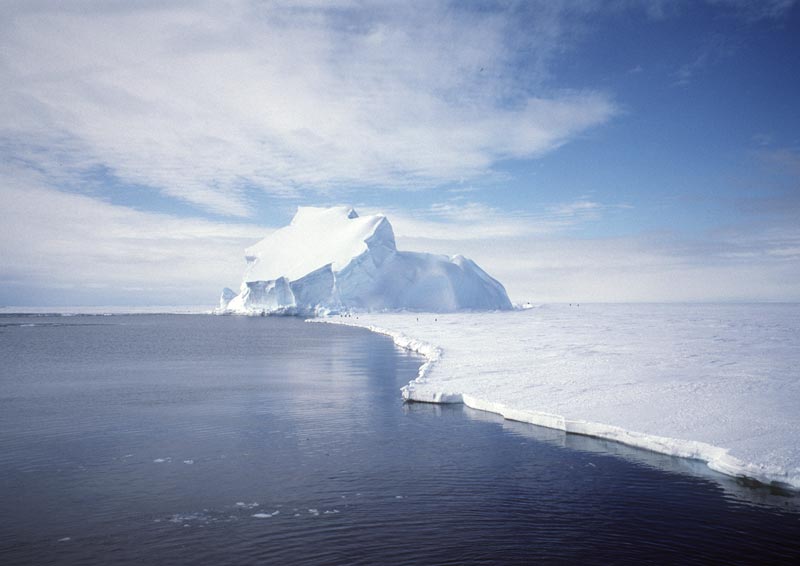Earths Shrinking Antarctic Ice Sheet

Explanation:
Is the continent at the end of the Earth slowly melting?
For millions of years,
Antarctica,
the frozen continent at the southern end of planet Earth,
has been
encased in a gigantic sheet of ice.
Recently, the
orbiting robotic GRACE satellite
has been taking sensitive measurements of the
gravity for the entire Earth, including
Antarctica.
Recent
analysis of
Gravity Recovery and Climate Experiment (GRACE) data indicate that the
Antarctic
ice sheet
might have lost enough mass to cause the worlds' oceans to rise about
1.2 millimeters, on the average, from between 2002 and 2005.
Although this may not seem like much, the equivalent amount of water is about 150
trillion
liters,
equivalent to the amount of
water used by US residents
in three months.
Uncertainties in the measurement make the mass loss uncertain by about 80 trillion
liters.
Pictured above is an
iceberg
that is a small part of the
Antarctic ice sheet.
Future research will likely focus on trying to better understand the data, take more
data, predict future trends, and understand
possible effects of these
trends on the
future climate of our entire
home planet.
Authors & editors:
Robert Nemiroff
(MTU) &
Jerry Bonnell
(USRA)
NASA Web Site Statements, Warnings,
and Disclaimers
NASA Official: Jay Norris.
Specific
rights apply.
A service of:
LHEA at
NASA /
GSFC
& Michigan Tech. U.

